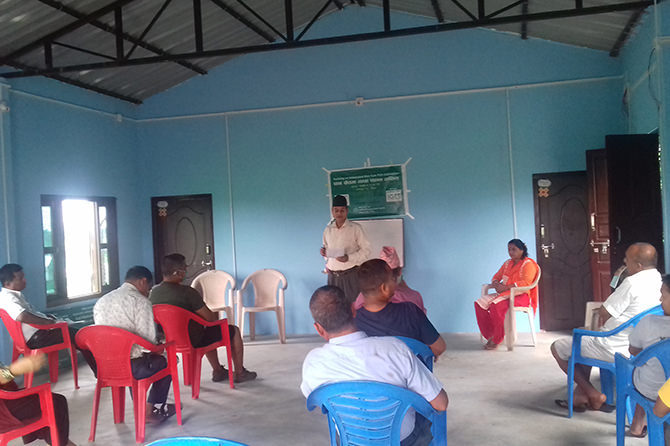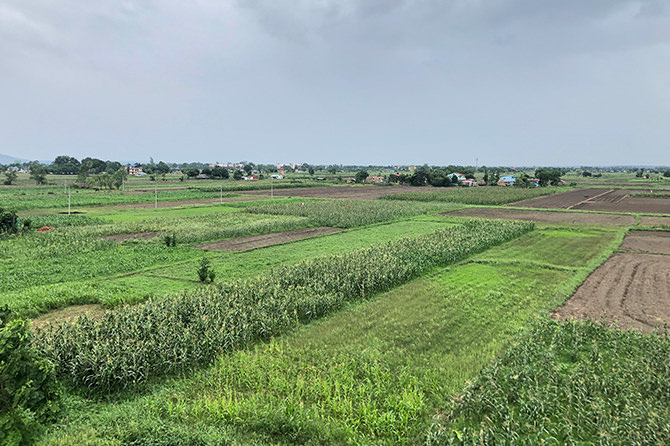SDM Project: Paddy cum Fish Cultivation for Sustainable Livelihood and Biodiversity Conservation
02.02.2023
SUBMITTED ORGANISATION
Society of Environment Conservation and Agricultural Research Development Nepal (SECARD Nepal)
DATE OF SUBMISSION
26/05/2021
REGION
Asia
COUNTRY
Nepal
KEYWORDS
organic, integrated farming, biodiversity
FOCAL POINT
Maheswar Ghimire – Chairman
LINK
Abstract
Disruptive food production system with increasing food demand has resulted in over exploitation of agricultural land. Additionally, resources are not used sustainably, especially, the water. Chitwan, one of the districts in Nepal is where the climatic condition favours for cultivation of paddy. The demand of rice within the country is fulfilled to some extent by the Chitwan district. Farmers however, have been using excessive amount of chemical fertilizers in the paddy cultivation. This has resulted in the loss of the soil microbiological activity affecting the fertility and productivity of the agricultural soil. Therefore, the new approach to restore soil fertility and to utilise scarce resource optimally, paddy cum fish cultivation approach has been introduced in the proposed region to conserve farmland biodiversity and to provide additional source of income to improve livelihood of small-scale farmers. The main focus of the project is to disseminate the knowledge to conserve biodiversity within the farm and to demonstrate the effect of agrochemicals in the productivity of crop and in the soil. The project, thus, was a community research where farmers themselves were involved in the research and were responsible to collect data of paddy development and the effect in soil fertility and productivity under the guidance of the agriculture officer.
Project was successful to demonstrate increase in yield of paddy production with minimum use of external resources and also the production cost was lowered as compared to the conventional production. Thus, with the increase in knowledge and understanding of the socio-economic situation of the landscape, the project was successful to achieve IPSI strategic objective. Even in the absence of the agrochemical, the increased production and the economic utilization of land were achieved and that was one of the major achievements of the project. As like other areas, our project is also affected by COVID-19 Pandemic. However, some of the training activities and its planned time was changed and adjusted without any adverse impacts on the project’s outcome/activities.



